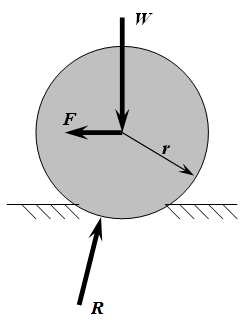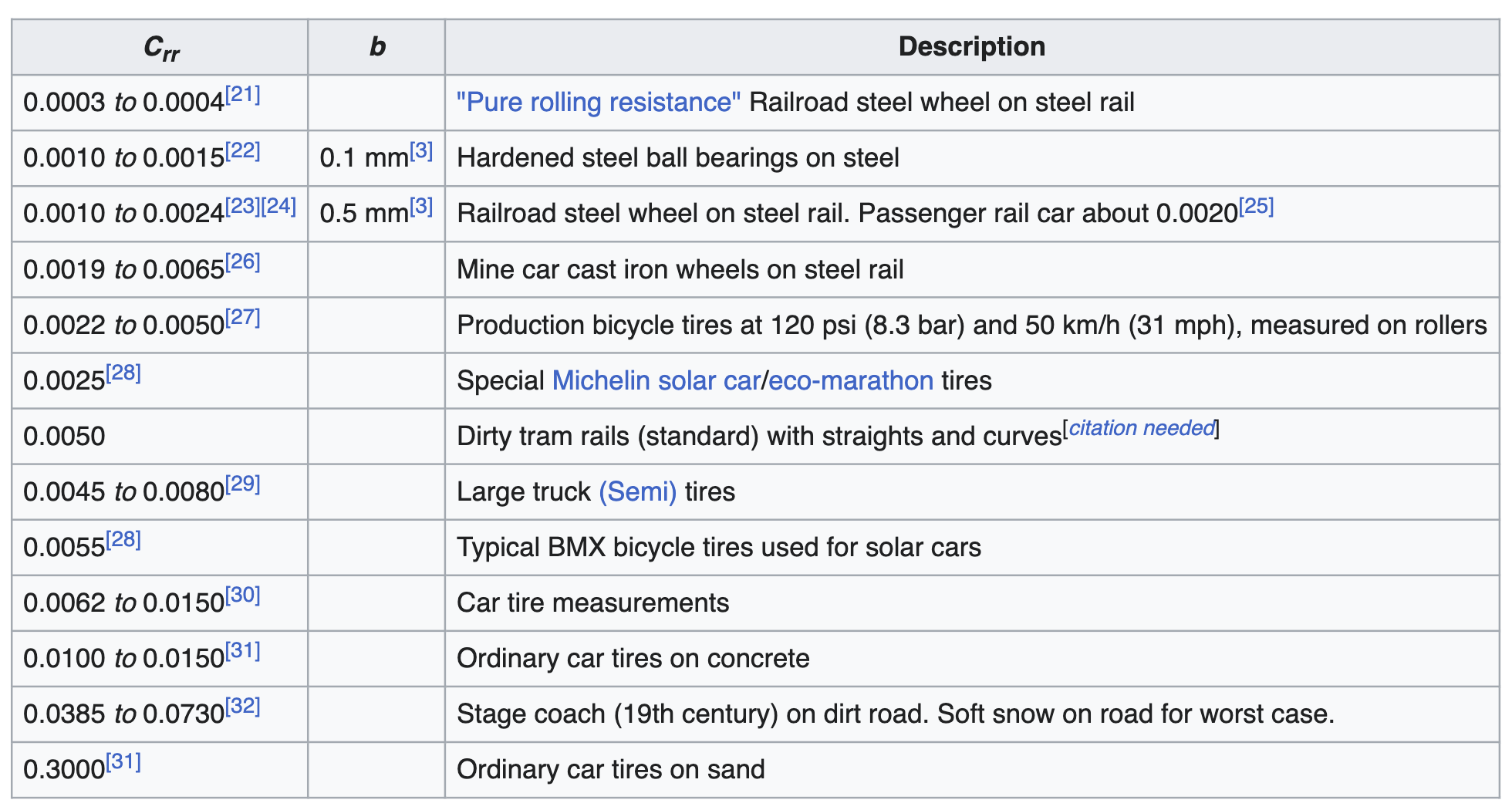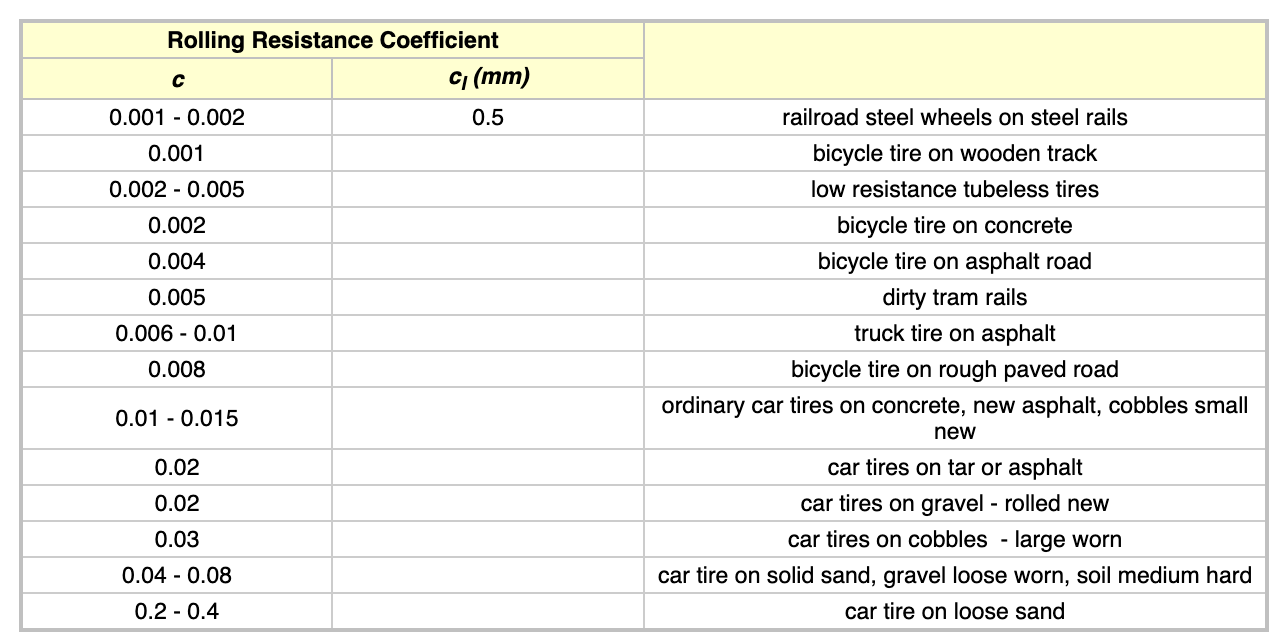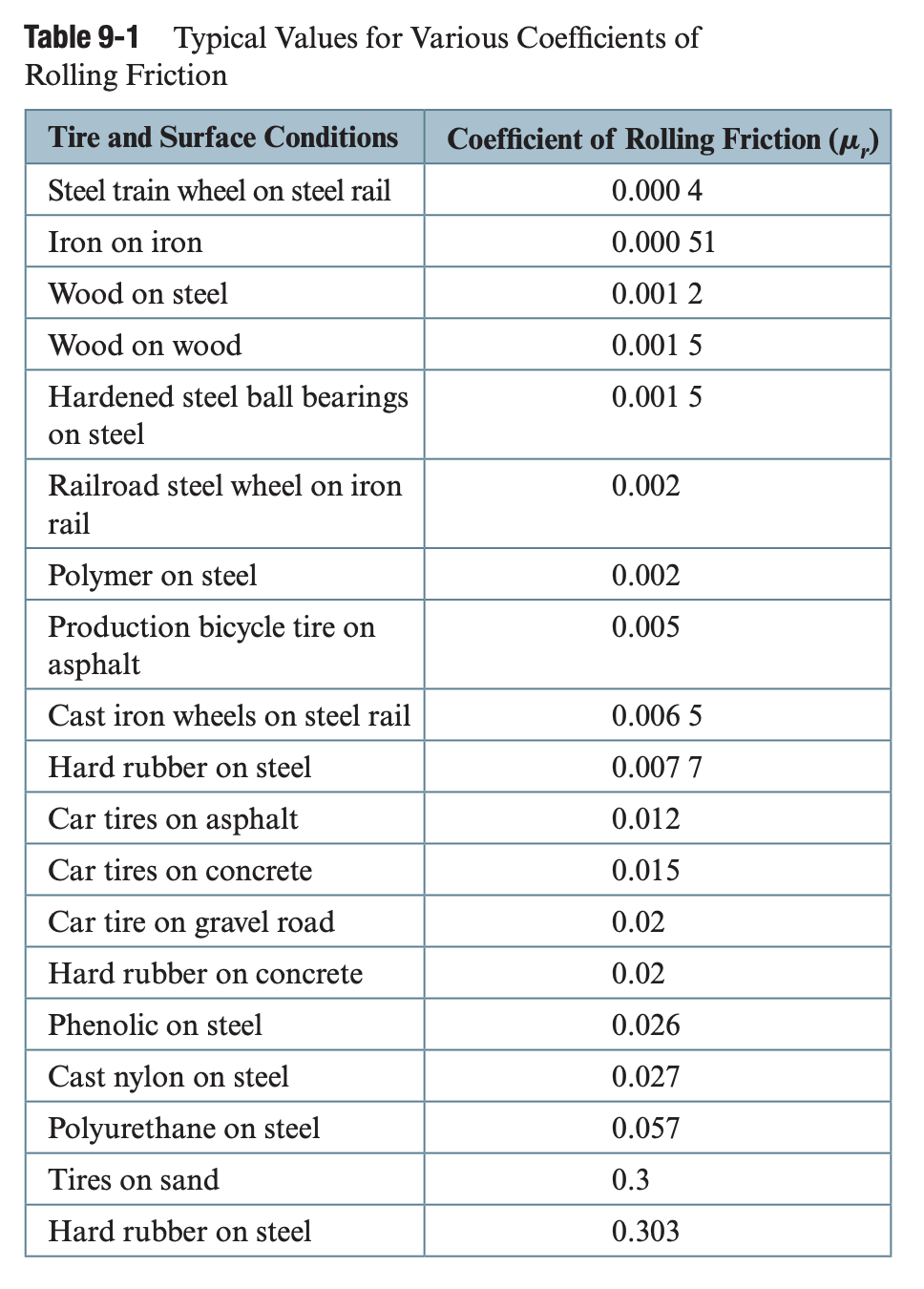Rolling Resistance
I didn’t learn this in ECE105, but this is very important to calculate motor requirements.
Rolling resistance refers to the force that resists the movement of some rolling object, such as a ball or a tire. It is a type of Friction.

The “rolling resistance coefficient” is defined by the following equation (notation from Physics textbook, page 329): where
- is the rolling resistance force (shown as in figure 1),
- is the dimensionless rolling resistance coefficient or coefficient of rolling friction (CRF), and
- is the normal force, the force perpendicular to the surface on which the wheel is rolling
Rolling Resistance Coefficient

For example, in earth gravity, a car of 1000 kg on asphalt will need a force of around 100 newtons for rolling (1000 kg × 9.81 m/s2 × 0.01 = 98.1 N).
- This does not include the original force needed to accelerate the car. It’s just maintaining the car at its current speed
https://www.engineeringtoolbox.com/rolling-friction-resistance-d_1303.html

